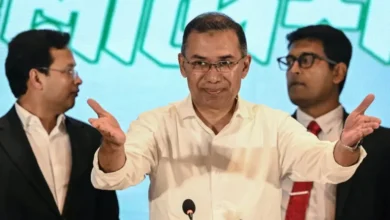
Assistant Foreign Minister for Gulf Cooperation Council (GCC) Affairs, Ambassador Najib Al-Badr, has reaffirmed the unwavering commitment of GCC member states to strengthening political and security coordination to counter emerging threats and protect regional stability and collective achievements.
Ambassador Al-Badr’s statement followed the conclusion of a virtual meeting of senior foreign ministry officials from the GCC countries, chaired by Kuwait, in implementation of directives from the ministers of foreign affairs during their extraordinary session of the 48th GCC Ministerial Council held earlier this month, reports Al-Rai daily.
He noted that the meeting addressed the ramifications of ongoing regional events on the security, stability, and safety of the GCC states and their citizens, in addition to reviewing the latest regional and international developments affecting the bloc.
The agenda also covered the humanitarian and environmental consequences stemming from regional escalations. Participants discussed strategies to confront these challenges, with a focus on bolstering food security, maintaining supply chain resilience, and enhancing health emergency preparedness and rapid response capabilities.
Ambassador Al-Badr stated that the officials reviewed a series of proposals and expert reports from GCC member states, focused on updating emergency response plans, conducting multi-dimensional risk assessments, and deepening integration between national and regional crisis management efforts.
The meeting concluded with consensus on the need to establish joint action plans and continue holding regular meetings to ensure timely coordination, in recognition of the GCC’s shared destiny and interconnected interests.
The initiative reflects a united Gulf vision aimed at preserving regional stability and building robust mechanisms for managing current and future challenges.












